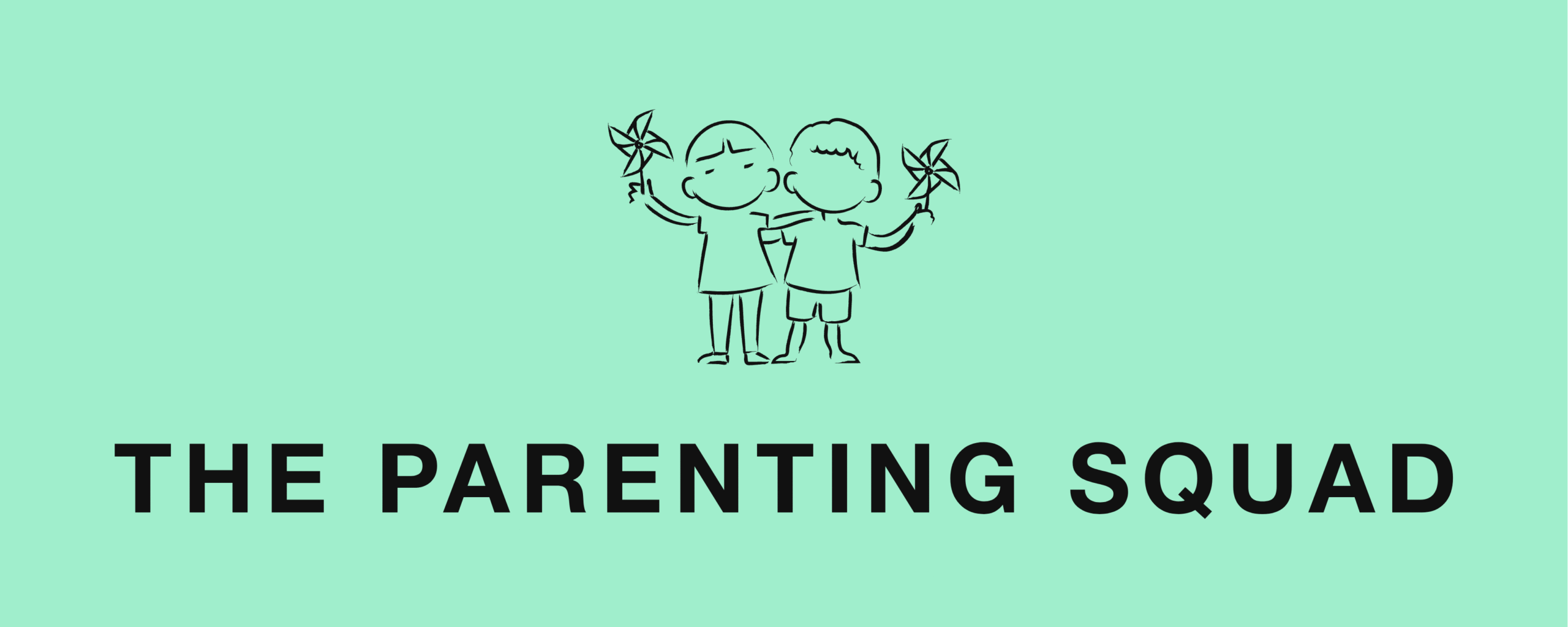Pregnancy Trimester Guide: Your Ultimate Milestone Journey
Congratulations! You’re about to start an amazing nine-month journey. Each pregnancy brings new surprises and challenges, whether expecting your first child or adding to your growing family.
Pregnancy can feel like an emotional roller coaster full of strange symptoms and memorable moments. One day, you might cry over a cute commercial; the next, you’re amazed by what your body can do. All these feelings are normal when you’re pregnant!
Knowing what to expect at each step can turn stressful moments into confidence that things are going just as they should. Every trimester has its changes for you and your baby, and this guide will help you understand what’s coming and how to prepare.
We’ll review each trimester, discuss symptoms and your baby’s development, and give practical tips to help you feel your best.
The First Trimester (Pregnancy Weeks 1-13): Early Changes
Physical and Emotional Changes
Welcome to the first trimester! This is when hormones surge, causing morning sickness, tiredness, mood swings, and new cravings or food aversions. You might feel exhausted or emotional. Your body works hard to support your baby’s development, so rest when you can.
You might also notice:
- Sore or tender breasts
- Needing to pee more often
- Sensitivity to smells or certain foods
A missed menstrual period is often the first sign of pregnancy, as the body stops shedding the uterine lining when pregnancy occurs.
All of these are common and usually get better with time.
Baby’s Development
In these first 13 weeks, your baby grows a lot! Major organs start to form, and around week 6, their tiny heart begins to beat. In the early weeks, your baby’s arms and legs first appear as small buds, which will continue to develop throughout the trimester.
The umbilical cord also forms, connecting your baby to the placenta and supplying essential nutrients and oxygen. By week 10, your baby becomes a fetus and has started to grow fingers, toes, and even fingerprints. By the end of the first trimester, your baby is about the size of a lemon.
Self-Care and Planning Tips
- Eat small, frequent meals throughout the day to help manage nausea and stabilize energy levels.
- Keep light snacks, like crackers or dry cereal, by your bed to ease morning sickness before getting up.
- Establish care early with a doctor or midwife you trust and feel comfortable discussing all aspects of your pregnancy.
- Take prenatal vitamins daily, focusing on ones rich in folic acid to support healthy fetal development.
- Prioritize getting enough rest and sleep, as your body needs extra energy during pregnancy.
- Stay hydrated by drinking plenty of water or herbal teas, especially if you’re experiencing nausea or vomiting.
- Consider light exercise, like walking or prenatal yoga, to help with circulation and overall well-being during pregnancy.
The Second Trimester (Pregnancy Weeks 14-26): Feeling Better
Physical and Emotional Changes
Many people call this the “golden period” of pregnancy. You’ll likely feel less sick and have more energy. Your belly will start to show more, and you might notice glowing skin or, in some cases, pregnancy acne. Gentle aches in your back or legs are common as your body adjusts.
You’ll probably feel more emotionally balanced, too. Many parents enjoy preparing for their baby at this stage.
Baby’s Development
This is an exciting trimester because you’ll likely feel your baby move—those first flutters are called “quickening.” Your baby can now hear your voice; by the end of the second trimester, they’re about the size of a banana.
Taste buds and facial features develop, and the baby’s movements become stronger. You may also notice jerky movements, which can sometimes be a response to loud sounds or loud noises as your baby’s hearing develops.
Self-Care and Planning Tips
- Try engaging in gentle exercises, such as prenatal yoga or swimming, to stay active and support your body through pregnancy.
- Start researching essential baby items and create a registry to keep everything organized and share with family and friends.
- Look into childbirth and parenting classes to prepare for labor, delivery, and the exciting journey of parenthood ahead.
- Take time each day to relax and bond with your baby by singing, reading, or talking to your growing bump—it’s a great way to connect.
- Schedule a hospital or birthing center tour to familiarize yourself with the space where you’ll deliver, helping to ease any nerves.
- Begin planning your postpartum recovery by considering support from family, friends, or a postpartum doula to ensure a smoother transition.
The Third Trimester (Pregnancy Weeks 27-40): Getting Ready
Physical and Emotional Changes
In this last stretch, your baby grows fast, and your body works harder. You might feel more tired, have trouble sleeping, or notice swelling in your feet. Heartburn and frequent trips to the bathroom are also common.
The nesting instinct may kick in—if you need to clean and organize, go with it! It’s your body’s way of preparing for your new arrival.
Baby’s Development
Your baby is gaining most of its weight now and getting ready for birth. During the third trimester, the baby’s nervous and body systems develop quickly and undergo rapid growth.
The baby’s once see-through skin becomes less transparent as more fat is added, helping the baby stay warm after birth. Their lungs start to produce surfactant, which allows the baby’s lungs to function and breathe after birth, while the baby’s kidneys are now producing urine. As birth approaches, the amniotic fluid cushions your baby and may decrease in the next few weeks.
The baby’s brain also prepares to regulate body heat after birth. Their lungs mature, and they pick up immunity from you. By week 36, your baby is considered full-term. As your baby “drops” lower in your belly, you might breathe a little easier but feel more pressure.
Self-Care and Planning Tips
- Get as much rest as possible, even if it’s just short naps throughout the day, to help your body recharge.
- Use extra pillows to support your back, belly, and legs for better sleep comfort.
- Eat smaller, more frequent meals to help reduce heartburn and discomfort as your baby grows.
- Take some time to pack your hospital bag with essentials and install the car seat ahead of time.
- Prepare and freeze meals in advance for easy options after the baby arrives.
- Drink plenty of water throughout the day to support your body and baby.
- Keep a list of contacts ready, including your doctor and loved ones, for when labor begins..
Pregnancy Complications: What to Watch For
While most pregnancies progress smoothly, it’s essential to know that complications can arise at any stage—from the first to the third trimester. Some women may be at a higher risk due to medical history, age, or other factors, so regular prenatal check-ups are essential for a healthy pregnancy. Common complications include gestational diabetes, high blood pressure, and preeclampsia, which can develop as pregnancy progresses.
A positive pregnancy test is an exciting milestone and a reminder to pay close attention to your health. If you experience severe morning sickness that prevents you from keeping food or fluids down, or if you notice unusual symptoms like persistent headaches, vision changes, or swelling, contact your healthcare provider immediately. Early detection and treatment can make a big difference.
Remember, most women will not experience severe complications, but staying informed and proactive throughout each trimester helps ensure the best possible outcome for you and your baby. Trust your instincts, keep up with your appointments, and don’t hesitate to ask questions if something doesn’t feel right.
Fetal Monitoring: Keeping Track of Baby’s Heartbeat and Overall Health
Monitoring your baby’s health is key to prenatal care, especially as you move through the second and third trimesters. Your healthcare provider will use several methods to check on your baby’s development, starting with the first ultrasound, usually between 7 and 10 weeks of pregnancy. This early scan can confirm your due date and let you see your baby’s heartbeat for the first time—a truly special moment.
As your pregnancy continues, additional ultrasounds may be scheduled to track your baby’s growth and ensure everything is on track. In the later stages, tests like non-stress and biophysical profiles help assess your baby’s well-being, especially if there are concerns. These tools allow your provider to spot potential issues early and take action if needed.
Fetal monitoring gives you peace of mind and ensures your baby develops as expected throughout each trimester. If you ever have questions about the tests or what they mean, don’t hesitate to ask your provider—they’re there to support you every step.
Labor and Delivery: What to Expect
As you approach your estimated due date—usually around 40 weeks of pregnancy—you’ll notice signs that your body is getting ready for birth. Most babies move into a head-down position in the weeks leading up to labor, which can cause increased pressure and some discomfort. Labor is divided into three stages, each with unique experiences and milestones.
It’s a good idea to have a birth plan in place, outlining your preferences for pain management, support people, and newborn care. While many women have a vaginal birth, sometimes a C-section is necessary for the safety of you or your baby. Understanding your options and what to expect can help you feel more confident and prepared.
Remember, every labor and delivery is different. Trust your body, lean on your support team, and focus on the excitement of finally meeting your baby after this incredible journey.
Postpartum Care: Your Recovery Journey
The days and weeks after birth—often called the “fourth trimester”—are times of significant changes and healing. In the first few weeks postpartum, your body is recovering from pregnancy and delivery, whether you had a vaginal birth or a C-section. It’s normal to feel tired, emotional, and even a little overwhelmed as you adjust to life with your newborn.
Prioritize rest and self-care as much as possible. Attend all follow-up appointments with your healthcare provider to ensure your healing and address any concerns. Watch for signs of complications, such as heavy bleeding, fever, or severe pain, and reach out for help if needed.
Remember, recovery is different for everyone. Give yourself grace, accept support from loved ones, and focus on bonding with your baby during these precious first few weeks.
Newborn Care: The First Weeks
Bringing your baby home is an exciting milestone, and the first few weeks are filled with rapid changes and new experiences. Most newborns are about 20 inches in average length and weigh between 6 and 9 pounds at birth. You’ll notice your baby’s delicate facial features, fine hair, and tiny fingers and toes—all signs of a healthy, fully formed newborn.
Your baby’s central nervous system, including the brain and spinal cord, is already developed at birth, and their digestive system and kidneys are ready to process milk and nutrients. In these early days, focus on meeting your baby’s basic needs: feeding, diapering, bathing, and helping them sleep safely. Watch for cues that your baby is hungry or tired, and don’t hesitate to ask your healthcare provider for guidance if you have questions.
The first few weeks are a time of learning and bonding. By understanding your baby’s needs and supporting their development, you’ll help them thrive as they adjust to life outside the womb. Enjoy these special moments—they go by quickly!
Essential Tips for Partners During Pregnancy Milestones
Partners are important! You play a key role in helping your family prepare for a new baby. Here are some simple ways to help:
- Attend doctor visits and classes: If possible, go together to appointments and childbirth classes. You’ll learn about pregnancy, labor, and how to care for a newborn. Being there helps you stay informed and shows your partner you’re equally invested in the journey. If you’re unable to attend in person, consider joining virtually or reviewing notes together afterward.
- Help with daily tasks: Take on extra chores, shopping, and errands. As pregnancy progresses, some things get harder for your partner. Simple acts like cooking meals, cleaning the house, or even offering a foot rub can make a big difference. Anticipate your partner’s needs as her body changes, and be proactive about providing support without waiting to be asked.
- Communicate openly: Share your feelings, worries, and excitement. Talking and listening to each other make this journey easier and strengthen your bond. Be patient and understanding, especially as pregnancy hormones and physical discomfort may affect your partner’s emotions. Create a safe space for open conversations, and don’t be afraid to ask how you can help or what your partner needs.
- Learn about pregnancy and parenting: Understanding what’s happening helps you support your partner and feel more involved. Read books, watch videos, and check reliable online resources to educate yourself about each pregnancy, childbirth, and newborn care stage. Consider reaching out to other parents for advice and insights—they can often share helpful tips based on their experiences.
- Bond with your baby: Set up the nursery together, talk or read to the baby, and go to ultrasound appointments. These moments will help you feel connected as a family. You can also participate in activities like creating a playlist, assembling baby gear, and brainstorming names. Feeling involved in these preparations will help you connect emotionally with your growing family.
- Be your partner’s advocate: During medical appointments or labor, be ready to speak up for your partner’s preferences and needs. This means discussing birth plans together and ensuring her voice is heard when decisions need to be made.
- Encourage self-care: Support your partner in making time for relaxation and self-care. Offer to join her in activities like prenatal yoga, gentle walks, or watching a favorite movie together. A calm and happy environment can positively impact both her and the baby.
- Prepare for the unexpected: Pregnancy and childbirth don’t always go as planned. Be flexible and ready to support your partner no matter what changes arise. Educating yourself about potential challenges, such as postpartum recovery or breastfeeding struggles, can help you be more prepared to assist.
- Take care of yourself too: Supporting your partner is essential, but don’t forget about your well-being. Maintaining your physical and emotional health will ensure you’re in the best position to be a strong, reliable partner throughout this journey and beyond.
Each step helps build a foundation for teamwork, love, and connection as you prepare to welcome your baby into the world..
Be Prepared to Meet Your Little One
Pregnancy is filled with highs, lows, and everything in between. Each trimester comes with new lessons and joyful moments to cherish.
Remember, every pregnancy is different. Use this guide as a starting point, but trust your experiences and talk to your doctor if you have questions or worries.
Be proud of yourself—your body is working hard to create new life. In just a short while, you’ll meet your little one. Until then, take it one step and one day at a time. You’ve got this!
Explore our page for more tips, support, and resources to help you through your pregnancy journey.






